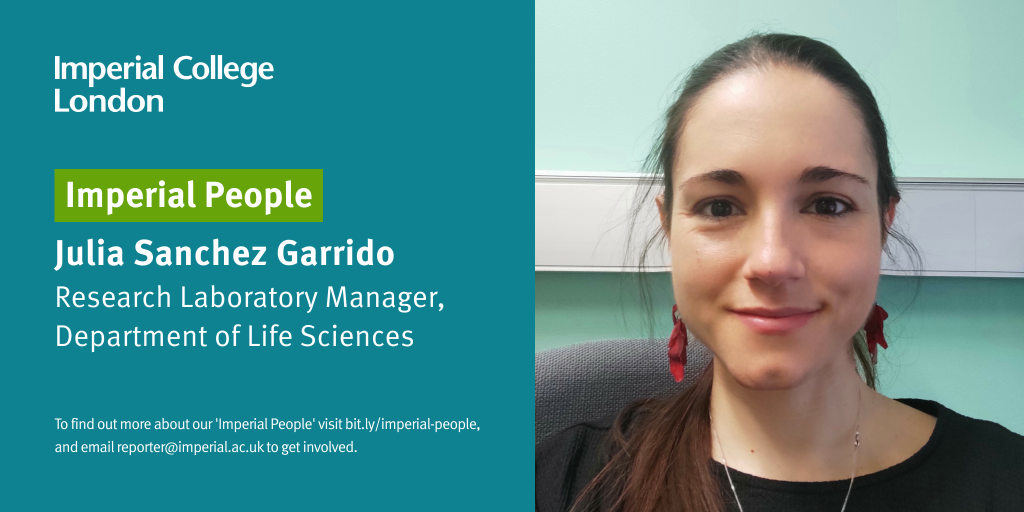“As scientists, I believe it is our responsibility to convey what we do to the general public”
My desire has always been to answer unanswered questions and defy what has been established, broadening the fields of research one small discovery at a time, and contributing to the better understanding of ourselves and our surroundings. With this aim I started my career in my home country Spain, where I studied biology. In 2013 I decided to move to the UK to do an MSc in virology at Imperial, and luckily obtained funding from Spain that enabled me to do just that. This is where I discovered my interest in how our body’s defences, our immune system, respond to attack by harmful microbes (pathogens) by mounting a complex and well-orchestrated response, and how pathogens have evolved ways to subvert this response.
My PhD with Dr. Avinash Shenoy in what is now the Centre for Bacterial Resistance Biology (CBRB) was key in defining my interests and priorities. Not only that I am fascinated by the interactions between the host (us) and the pathogen (bacteria), but also understanding that science is not only about what happens in the laboratory.
As scientists, I believe it is our responsibility to convey what we do to the general public. The COVID-19 pandemic highlighted the need for science communication to step up. During my PhD I started taking part in and organising ,science outreach activities, especially those oriented towards families. I have also been involved in the Imperial Festival, which later became the Great Exhibition Road Festival, since 2018.
In 2020 several of us in the CBRB started a collaboration with the community engagement team at White City. Thanks to them we were able to reach out to families through the virtual Meet the Scientist sessions organised by NOVA, and through in-person half-term science activities in the Invention Rooms. Outside of Imperial, I participate in science workshops in my mother tongue through Native Scientist, a non-profit organisation aiming to promote science education.
I am now a postdoc in the Frankel Lab focussing on host-pathogen interactions at the mucosal surface, and the mechanisms bacteria use to take control and avoid immune responses. To do this I use two different models of bacterial infection: one mimics gut disease, while the other centres on lung infection by a bacterium that causes severe disease in hospitals (Klebsiella pneumoniae). Both models have a similar end goal, allowing us to understand infection better to be able to fight the microbes using novel treatments and strategies. This is particularly important given the rise in antimicrobial resistance observed in recent years.
